“Where did you live?”
“How much is your rent?”
“What was my favorite country?”
“Do you speak other languages?’
“How do you handle work?”
“Is it safe?”
“Are you going to live there forever?”
The questions went on and on, which I appreciated because this was someone who I really respect and he chose to sequester me in a room full of more exciting options.
I realized that, although I’m pretty boring in my own eyes, my daily existence is anything but to a lot of my friends and family who live a world away.
So, for this month’s postcard, I started reflecting on the word “normal.”
Of course, much of what’s considered typical, average, and unremarkable in my life is actually pretty b-a-n-a-n-a-s to a lot of you.
On that note, I decided to make a list of things that I now consider normal and don’t even give a second thought to anymore, but would make some people – like Brent – say “Whoaaa, really?”
Some things on this may apply to other places I’ve lived in the world over the last decade, like Costa Rica, Nicaragua, Vietnam, and Cambodia. But it’s weighed heavily towards the Philippines where I live now, which is unique (ok, bat-shit crazy!) in its own way.
I was going to document them all here, but after making a list of about 70 such “normal” phenomenon and still counting, I realized it has to be an ongoing series.
So, without further ado, let’s have a little fun. Welcome to my bonkers/perfectly normal world!
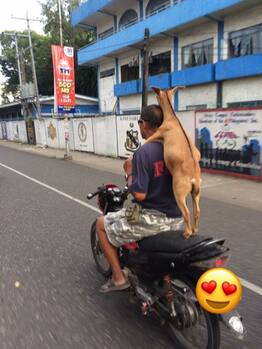
This photo was taken in the small seaside city of Dumaguete where I lived for over a year, and the “Goat Guy” was a resident. He treated his pet goat like a dog and trained him well, so he’d come with him everywhere - even jumping on his motor bike and holding on while they rode around.
I’ve seen plenty of exotic pets, like snakes, parakeets and more. But in San Juan del Sur, Nicaragua, there was an American lady in her 70s who walked a small orangutan around everywhere hand-in-hand. Rumor has it that she used to be a star in the adult film industry in the 1960s before going down south permanently.
| Sports as bad as their teeth The entire WORLD positively worships soccer (football), rugby, cricket, and all of those UK-based sports. Everywhere I go, I have to deal with soccer or weird Australian Rules “footie” on the TV (sorry, Judd-O and Clint!). I’m not even joking when I say that one of the reasons why I decided to settle in the Philippines instead of Thailand or other neighboring coutnries is because of the love and obsession with NBA basketball here. This is one of the rare times when you’ll hear me say that the U.S.A. is number 1!!! (In sports.) |
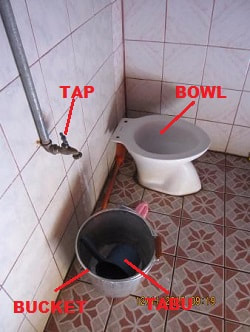
In most countries in the Developing World, public bathrooms are positively nasty. In fact, you may encounter little more than a whole in the ground, a bucket, and a water spigot on the wall.
If you want to know how civilized any country is, just take a look a random sampling of bus station bathrooms.
By now, I’m well-prepared, and carry around an emergency hygiene kit in my backpack, including hand sanitizer, wet wipes, bug spray, Axe spray deodorant (to crop dust over others, or myself), Chapstick, tissues, bubble gum, and a stack of Starbucks napkins to use in case of emergency.
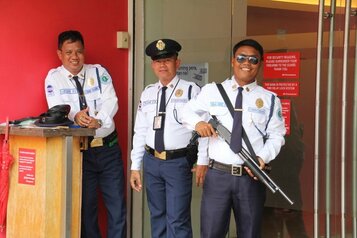
Every single store, apartment building, office, restaurant, pharmacy, and coffee shop has an armed security guard on duty – if not more than one. Sometimes, they carry rusty pistols older than they are.
But, most of the times here in the Philippines, they’re toting 12-gauge shotguns or semi-automatic AR15s – and they ain’t afraid to use them, as robberies are/would be common. I don’t even really notice it anymore – except maybe when a guard is eating lunch and Burger King and his rifle is on the table, pointed right at me.
A funny thing is that the security guards here are super friendly to me, calling me “sir” and even saluting me as I pass by. Since I have a shaved head and in decent shape, they all assume I’m in the U.S. military and want to show their respect!
The Philippines is as cursed with natural disasters as it is blessed with natural beauty. On the Pacific “Ring of Fire” chain, it is home to hundreds of active volcanos, including Mt. Pinatubo which erupted in 1991 and devastated the surrounding countryside, killing tens of thousands and forcing the evacuation of a massive U.S. military base here.
Since I’ve lived here, I’ve been caught in the largest typhoon ever to make landfall (Haiyan), been stranded by other typhoons, and caught in a landslide.
BREAKING: No bullshit – about twenty minutes after I started writing this, I was in a park working out when suddenly, thousands of people starting spilling into the streets, evacuating from the surrounding office buildings and high-rise apartments. I quickly discovered that we’d had a 6.3 magnitude earthquake – not insignificant.
Update: we just had another one – of 6.5 magnitude – in Samar today.
In many Equatorial and tropical parts of the world, these natural disasters are the norm, and locals show amazing resilience.

A good part of the world's population are obsessed with having lighter skin.
That’s incredibly sad and ridiculous but true. There are many reasons for this, but it’s directly tied into the cultural norms and preferences in many countries that were colonized by the Europeans and, in some cases, Americans. The deeply rooted effects include a power dynamic and social stratification that’s directly correlated to how light your skin is.
People with darker skin tend to be more indigenous and less mixed with European blood, as well as known for being manual laborers and those who traditionally work in agriculture or out in the sun.
Skin whitening is most popular in Asia, with Japan and Korea make up a huge part of the demand, as its perfectly normal for me to see travelers from the country walking around like lily-white ghosts reminiscent of Michael Jackson later in life, covered head to toe against the sun even when swimming. Creepy. Globally, the skin whitening industry is expected to bring in about $7.8 billion dollars this year alone and rise to $8.95 billion within a few years.
But, no one is more concerned with the lightness of their skin and spends more on these products than Filipinos. Girls who are darker get teased and bullied mercilessly, called skin shaming. There are less social, educational, employment, business, and even marriage opportunities for them just because of their skin color (which I think is perfectly beautiful!). But it’s not just women who are obsessed with lighter skin. In one Philippines study, more than 25% of all young male university students were regularly using a skin whitening product!
This misguided standard of beauty is blatant is everywhere in daily advertising and media, and all of the celebrities, actors, and models are all unnaturally white.
Everywhere you turn, you’ll see lightening cremes, lotions, soaps, pills, sprays, even surgeries. (I can’t even find aftershave for sale that doesn’t have skin whitening additives, so I have to bring it back form the U.S. with me!). It also gives rise to a host of shadowy practices and downright quackery performed by unlicensed medical professionals or scam artists. Friends of mine had someone come to their hotel room to administer an IV with a “special” formula that was guaranteed to lighten their complexion, only to get them violently ill for days.
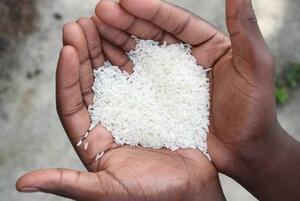
A good portion of the world lives on rice, and that’s no exaggeration. It’s also definitely true in Southeast Asia and the Philippines where they say, “Rice is life.” For some unknown reason, they LOVE rice! To me, it’s completely tasteless except for whatever you serve it with, but they literally eat rice for breakfast, lunch, dinner, and even have sweet and sticky rice for dessert.
It goes to hilarious lengths, like when people check into hotels carrying their own rice cooker. When you ask Filipinos what they had for their meal, they’ll just say, “rice.” Upon asking them if that’s all they ate, they’ll answer, “No, we had fish/chicken/spaghetti, etc. too.” But to them, the highlight of the meal is the rice – not the steak haha.
Rice also serves as an efficient way to feed billions of people, as it grows year-round, is ecologically self-sustaining, and takes advantages of moist and flood-prone climates.
| Counterfeits-R-Us Outside of the U.S., counterfeiting is HUGE business, supplementing the GDP of entire world economies, like in China or North Korea. In Thailand, I have access to an incredible market of counterfeit goods like designer purses and bags, clothing, perfumes and colognes, and every electronic gadget you could think of. Quality varies from Chinese rip-offs that will break after one use (or sooner) to solid merchandise that is actually built in the same factories and with the same materials as the real thing. I know of one store that’s like heaven to me, as it has high-quality versions of vintage Nike basketball sneakers. From Air Force Ones to every generation of Jordan’s, they’re all for sale at only 1,000 Baht - $30. I was ready to drop about $300 in there but the kick in the balls is that they only have up to size 10 – another thing that’s “normal in Southeast Asia. Grrrrr! | |
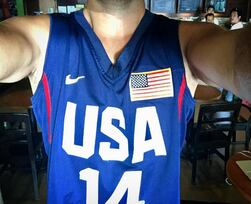
I get slapped around on social media for being overly critical of the U.S., but I can say with confidence that the myth of the Ugly American is pretty much dead. Instead, American people who travel abroad, whether for tourism or to live, are generally perceived as polite, caring, kind, fair-mannered, and generous.
They like us, especially compared to the rude and demeaning behavior exhibit regularly by people of other nations.
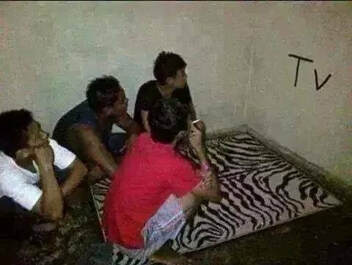
Around the world, I’ve found that most people are gregarious, playful, cleverly humorous, and even hilarious. Of course, that humor translates differently in different cultures, but, to me, the Philippines is the funniest county on earth.
The whole daily experience here consists of joking, teasing, mocking, smiling and laughing, all to a sing-song cadence that makes each day entertaining. Filipinos are also masteries of imitation and mimicry, so songs, skits, joke telling, and other forms of dramatics are the essence of socialization.
All of this humor also serves a practical purpose, as humor is a big part of how people can cope with the harsh realities of poverty, natural disasters, tough living and working conditions, and other extreme stressors.
For those of you who know me, I’m a sh*t-talking, wise-ass at heart, so the Philippines is the perfect stage for my funny (that’s highly debatable) antics, too.
| Of course, sometimes, their humor isn't intentional as they have a less than substantial grip on the English language and wear the shirts to prove it!). Check out these funniest t-shirts I've seen in Asia that have become normal to me! |
Look for many more of these things that I now find normal in future monthly postcards, and thanks for reading and sharing!
Your abnormal friend,
Norm :-)
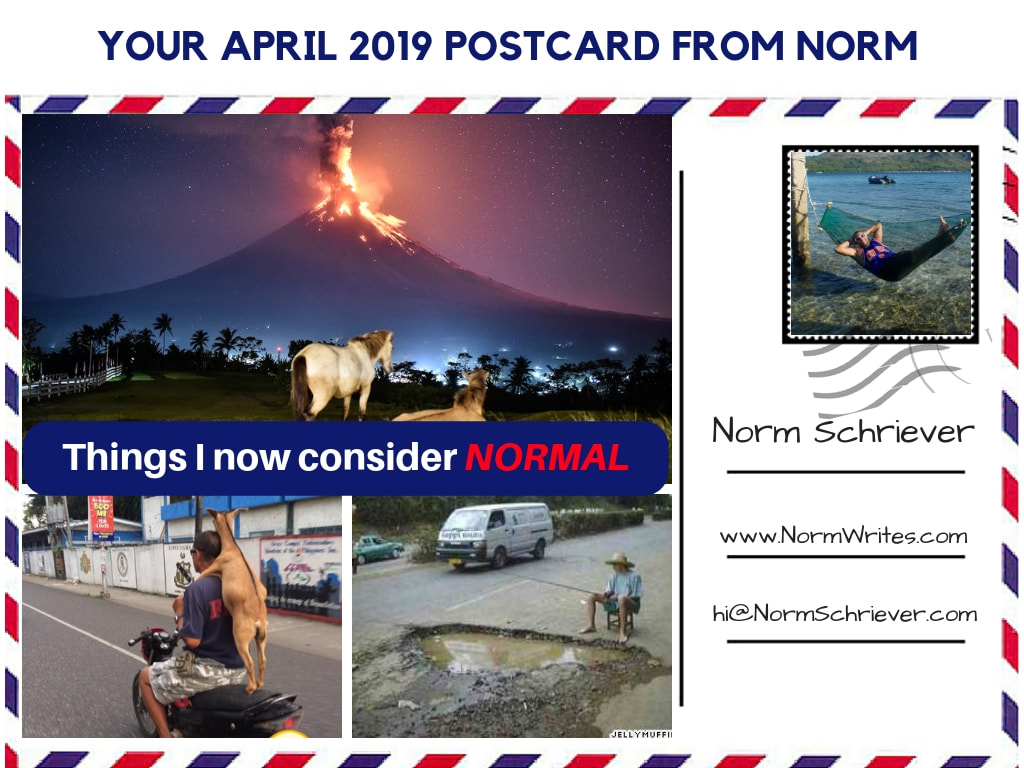
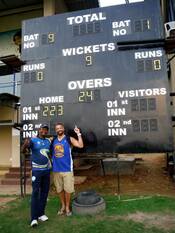

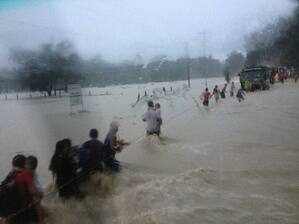
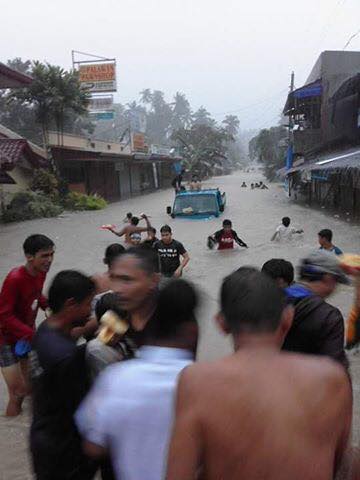
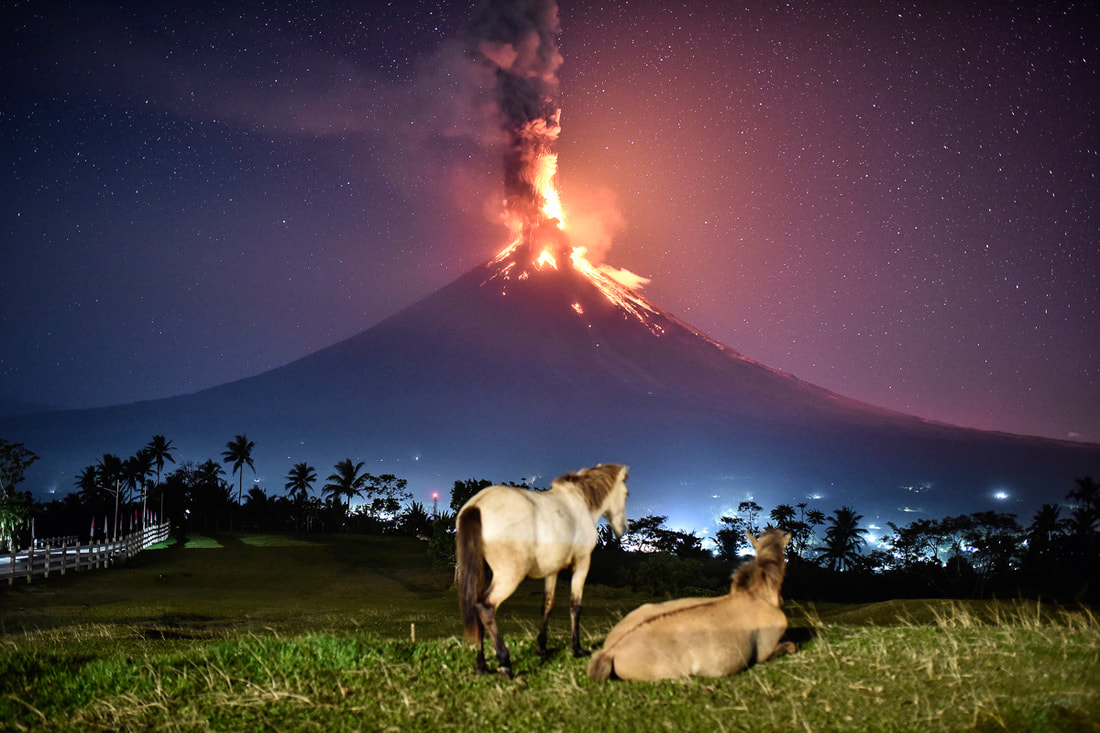


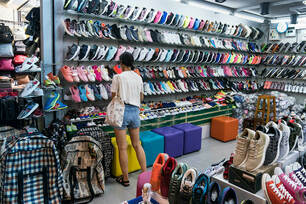
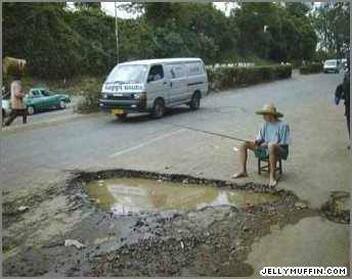
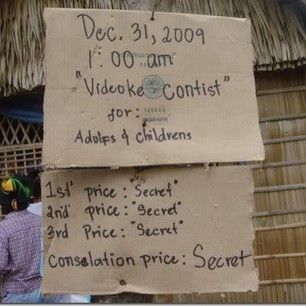

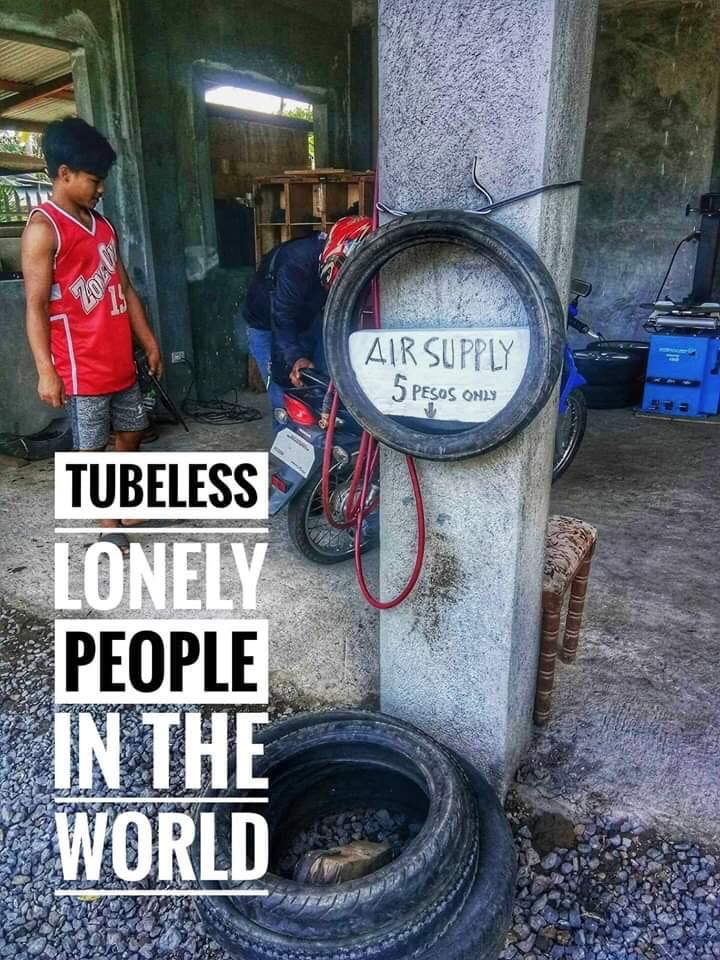
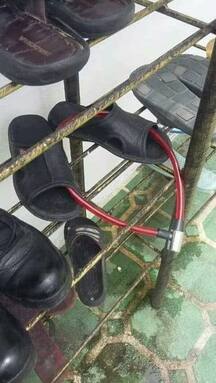
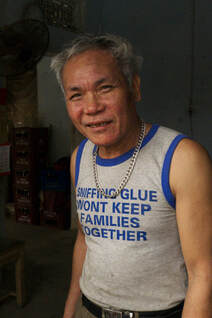

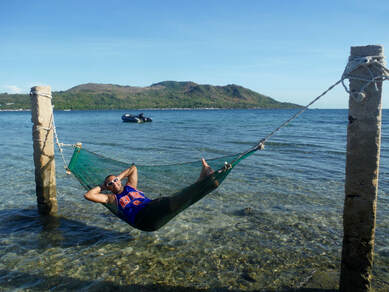
 RSS Feed
RSS Feed